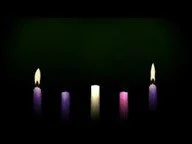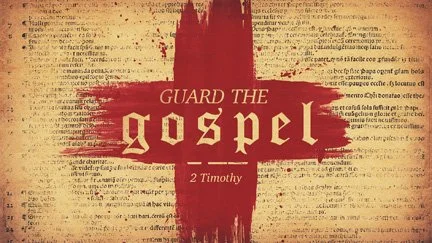Psalm 13
One of my favorite authors is Louise Penny, and I am enthralled with her series of books featuring Chief Inspector Armand Gamache of the homicide division of the Sureté de Quebec, the provincial police of Quebec. The ninth book in the series is called How the Light Gets In. It begins with Gamache’s second-in-command, Jean-Guy Beauvoir, relapsed into drug addiction and working with the corrupt Chief Superintendent Francoeur of the Quebec provincial police. Francoeur is determined to get rid of Gamache and has transferred the rest of the homicide division to other departments, except for Gamache’s loyal agent, Isabelle Lacoste. The rest of his team has been replaced by incompetent agents.
Gamache retreats to the village of Three Pines, where he works with his friend, Superintendent Therese Brunel and her husband to discover all that Francoeur has been up to and to figure out how to bring him down. And throughout the book, Gamache tries to reach out to Beauvoir in order to get him help with his addiction and get him out of the influence of Francoeur. Gamache and his friends eventually discover the illegal activities and corrupt actions of Francoeur and have enough to ruin his career. Francoeur comes to Three Pines to try and eliminate Gamache for good, but in their confrontation Gamache shoots Francoeur. He then races to the schoolhouse where there is a bomb. Beauvoir knows that the bomb is set to explode when the door of the schoolhouse is opened, and he shoots Gamache in order to save his life. The book ends a few months later, when Gamache and his friends have gathered to celebrate the wedding of Beauvoir, who is now sober and thriving, to Gamache’s daughter, Annie. Gamache has retired and moved to Three Pines, and Isabelle Lacoste has been made the new head of homicide.
The title of the book, How the Light Gets In, comes from a line in a song by Leonard Cohen, “Anthem.” The complete passage is, “Ring the bells that still can ring, forget your perfect offering, there’s a crack in everything. That’s how the light gets in.” The song is about hope and redemption. Cohen discussed the meaning of his song late in his life. He stated, “The future is no excuse for an abdication of your own personal responsibilities towards yourself and your job and your love. ‘Ring the bells that still can ring’; they’re few and far between but you can find them … This is not the place where you make things perfect, neither in your marriage, nor in your work, nor in anything, nor your love of God, nor your love of family or country. The thing is imperfect. And worse, there is a crack in everything that you can put together: Physical objects, mental objects, constructions of any kind. But that’s where the light gets in, and that’s where the resurrection is …, that’s where the repentance is. It is with the confrontation, with the brokenness of things.” Certainly, the characters in Louise Penny’s book experienced confrontation, brokenness, and finally redemption and resurrection. And it came through the various ways in which the light came in through the cracks.
Psalm 13 seems to me to be an example of light getting in through the crack, through the brokenness. I can relate to the experience of the writer of this song. He is at the end of his rope. He has lost all hope. He is depressed and weary and does not know how to go on even one more day. All he can think to pray is, How long? How much longer will I have to be in this place? How much longer will I have to wait for you to do something about this situation? How long will it be till things get better? It felt like God was hiding from him. When you think about it, it’s kind of amazing that this man could still pray at all.
Have you ever been that low? Has life ever left you in that kind of state? I have certainly known a lot of folks over the years who have had this experience in one way or another, for one reason or another. People of faith – because, yes, even though the man was questioning God, he was still talking to God – people of faith who just didn’t know how much longer they could survive with things the way they were. People who were depressed and alone and afraid. People who were grieving a loss that seemed too deep to recover from. People who bared their souls to me even as they had shown them to God, asking the hard questions that some people are too afraid to ask, but convinced that there must be answers somewhere, somehow, determined to keep asking until they got those answers.
The psalmist is also persistent in his asking. And he is specific about what he needs: “Give light to my eyes, or I will die.” He needs the light to come back into his life again. The light of hope. The light of faith. The light that shows the way to move forward. The light of God’s presence, revealed so often through fire and lightning. And the psalmist expresses his confidence in God’s goodness: “I trust in your unfailing love; my heart rejoices in your salvation.” The light of God enables him to see and remember the love of God, and because of that he is able to feel joy in God’s salvation.
The light often comes through the broken places, through the cracks. Sometimes it only comes through the cracks. When everything seems dark, when you feel closed in and closed off, when you are locked into that deep pit of sadness or depression or grief, how else would the light get in except through the cracks? And once the light gets into the darkness, the darkness cannot be dark anymore. The light reveals what is there in the present and suggests what might be in the future. And we never would have seen the light unless we had been broken and cracked.
I know that place. I know it well. I was in the darkness of grief and depression for years after my mother’s passing. I thought I would never be free of it again. It dampened every other experience and kept me from feeling any joy or peace or hope in my life. I looked okay on the outside, but on the inside it was pitch black dark. But I was also broken, and it was through the brokenness that God shone the light. I knew that I was broken in ways that I could not heal on my own, so I looked for help from a counselor. And she was able to help me look at my brokenness and through my brokenness to a place of wholeness and restoration. And where those broken places allowed the light to come in, I began to be myself again, not the same self as before, but a different, stronger self. Because where the broken places heal, the scars are stronger than the original skin.
Finally, the psalmist gets to the place where he can see the time when he will sing to the Lord again, recognizing that God has been good to him. I talked last week about Chippie the parakeet, who went through a traumatic experience that left him unable to sing like he had before. Sometimes we don’t feel like singing, either. But when we work through our brokenness to the place of resurrection, we find new songs to sing to God. We realize that God is good to us, that God would never hide from us, in spite of what it feels like, and that God will help us find our way out of darkness. God will heal our brokenness. And God will shine a light through the cracks to show us the way.
Life is not perfect. It will never be perfect. Sometimes it is less perfect than others. But life doesn’t have to be perfect to be good. We don’t have to be crackless to be happy or useful or hopeful. There are cracks in everything and everybody. But it is through the cracks that the light gets in. So don’t give up, don’t give in, even if it seems dark where you are. The light is there. It is shining. And it will reach you, no matter what.










